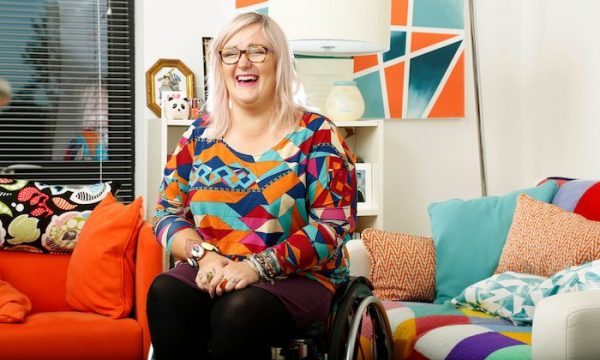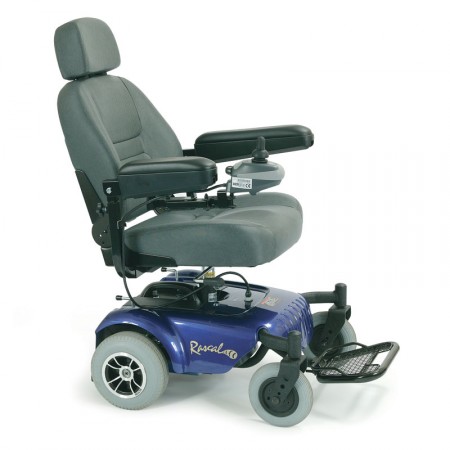Like many young women, Emily Yates has tattoos, tinted hair, a love of fashion and a great sex life. She also happens to have cerebral palsy
By Emily Yates

I think it is fair to say that the Paralympics have changed perceptions for the better in linking disability and sport. We have become used to watching elite athletes win medals and represent their countries in front of large crowds, and they just happen to use wheelchairs or prosthetic limbs, or be of short stature, or have hearing and visual impairments.
But what happens when we change “sport” to “sex”? Does awareness and education exist in the same way?
Inclusive and accessible sex education certainly did not exist when I was at school – apart from, perhaps, putting a condom on a banana. We are aware that disabled women, in particular, are almost three times as likely to be sexually abused than their non-disabled peers and yet those of us with disabilities are still entering lessons and workshops that are not designed for us. There are few, if any, subtitled and audio-described videos, information is usually not easy to read or understand, and the bodies in these videos and photos rarely, if ever, reflect disability of any kind, further alienating those of us classed as less than normal, and often less than attractive.
My twin sister and I were born 10 weeks early with cerebral palsy and I became a wheelchair-user at the age of nine after corrective surgery on my legs.
Like many of my friends, I have been in situations where I felt vulnerable sexually, but one in particular was exacerbated by my disability. I am well able to stand up for myself, but I was in a taxi, with my wheelchair in the boot, and the taxi driver was totally inappropriate and very suggestive. Knowing that my disability hindered me in dealing with his approaches was horrible. I decided to keep talking politely to him in the hope that I could distract him through small talk, which I did, until he dropped me off.
I reported him, but it highlighted the difficult situations you can find yourself in sexually if you have a disability.
Children and teenagers are constantly told to respect themselves and others, but if you are disabled, it is likely that many of the adults in your life might never consider you as a sexual being, meaning that the usual safety advice and strategies are rarely discussed. You are doubly vulnerable if you can’t physically remove yourself easily from an awkward situation.
I have been fortunate enough to have great sex and talk about it, but it wasn’t easy for me. Before losing my virginity pretty late, when I was 19, my main concern wasn’t the act itself, but the positions that would be possible without causing a great amount of pain. I also worried that the passion would totally disappear after a bit of inevitable planning.
There were very few helpful answers on the internet, so that left one avenue: laughing and crying with my auntie and sister on a Sunday afternoon as we went through possible positions together … no doubt a story that will surface should I ever get married.
Although it was a giggle and it helped a lot – thanks, guys – it is also tragic that I had to get myself in such a panic over something that is supposed to be sexy and fun because I simply didn’t know where, or who else, to turn to.
Most people, disabled or not, go through a transition stage in which they are suddenly aware of others’ attraction to them and their desire to be attractive in return. For me, this happened quite late and I tended to leave getting the guys to my sister, who was, I have to say, very successful at it (she is about to get married). Although I’m over the moon for her now, I can see that I was pretty jealous of her victories with boys at the time.
As I have got older, learned that necessary patience and had great sexual experiences, I have also grown in confidence, although I still have some way to go until I am as self-assured as I would like to be when it comes to romance and intimacy.
Some people still think that disability isn’t sexy or, worse, having sex with someone who has a disability is seen as wrong. There is also still a sense that if you have a disability, you are ill or frail, neither of which fit into the traditional idea of what we consider sexually attractive in our society.
But change is coming and I am proud to be a part of that.
My sexual experiences have resulted in an awareness of myself as a woman that no one can take away – and that is a great place to be, disability or not. But it is important to remember that those experiences don’t come easily for young disabled people. For so many years, I have had more important things than being sexy to concentrate on. Other teenagers tend not to have to think twice about whether they are able to go on school trips, or prove they can go to university – physically travel there, rather than just reach the required academic standards, find accessible accommodation and work out travel arrangements.
My confidence has been boosted enormously by taking control of my life, and this has helped me in my job as a travel writer. When I volunteered at London 2012, I sat next to Sebastian Coe at a press conference and asked him for 15 minutes of his time and all the contacts he could give me. He, in turn, mentioned me in his speech at the closing ceremony for saying that the Paralympic Games had “lifted the cloud of limitation” for those with disabilities.
I went on to do a two-year consultancy with MetroRio on accessible underground travel and wrote an accessible-travel guide to Rio de Janeiro with Lonely Planet in preparation for the 2016 Olympic and Paralympic Games. I am the founder and one of the directors of My Purple Compass, a company that encourages people with disabilities to travel far and wide, journeying out of their comfort zones.
I also work with Enhance the UK, which, through the Love Lounge, is providing the sort of information I would have loved as a teenager. Change is slow, but it is happening, and we are able to help others to discuss important issues, such as the positions and pain worry I had years ago, through to whether disclosing a disability on an online dating site is a good idea.
Sex education for disabled children and teenagers must be taught in schools as a matter of course, and parents and other family members can play a big part by making it as important for disabled people as for everyone else. More sexually active disabled people in popular culture would also help to change all those perceptions of disabled people, and illustrate that we enjoy sex as much as anyone.
Although being a disabled woman is currently what my work is based on, I’m much more than a girl in a wheelchair. I have the same tatts, tinted hair and love of fashion as many women my age, and I hope that others see that as well as the wheelchair. I am learning that disability and sex are not mutually exclusive and I love the journey that comes with it.
As told to Joan McFadden
• Help and guidance on sexual matters for people with disabilities is available at enhancetheuk.org/enhance
Complete Article HERE!



